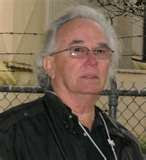Following my commentary on The Police News website recently in which I agreed with a new policy of Galveston Police Chief Charles Wiley which prevents off-duty police officer's from accepting extra jobs in businesses which derive more than 55% of it's income from alcohol sales, I received this unsigned e-mail:
"Bar jobs are not all slop joints or buckets of blood. If you think the City has a liability problem with officers working the bars wait until the officers are pulled out. The fights will become more violent and shootings inside the bars will increase. Many shootings and stabbings have been prevented by the uniformed officer at the door of the bar. No one ever talks about the violent crimes that did not happen because of an uniformed officers presence. Dealing with drunk, drugged and mentally disturbed people is a business that invites lawsuits. Most people who spout off have never had to put their hands on anyone or stand up for anything. There are good cops and bad cops. Let's create an atmosphere that rewards the good cops and roots out the bad. The theory that bad things happens in bars and the city get sued so let's pull the cops out of the bars can be expanded to bad things happen in poor neighborhoods and the city gets sued so let pull the cops out of there too."
I hope this unsigned letter was not from a police officer. If it was, I am concerned for his sense of reasoning and understanding.
There are cities and counties all over the country that do not allow it's officers to work in the establishments which we have described. I have yet to hear that police have lost control of the beer joints, honky tonks, and dives, to the drunk and disorderly.
State laws, on the books for years, have given police authority to inspect these places at will. It used to be that beat cops would get out of their patrol cars occasionally and walk through the dives which were known trouble spots on their beats. This was always a great deterrent, but we seldom see it anymore because bar owners claim harrassment when they do.
I suspect that if there were no other way to control these places and maintain peace in these places, municipal and county government could refuse to issue them a business permit. The state could refuse to issue them a liquor license. In fact, local law enforcement may now petition the Texas Alcoholic Beverage Commission to suspend the license of any establishment deemed to be a public nuisance. We need not station an armed guard or police officer in these places.
Those in positions of leadership in police agencies will rush to tell you that the presence of an armed police officer in the place where people are on a mission of becoming drunk and obnoxious, is just asking for trouble. Sooner or later there is bound to be either a confrontation, either by the officer to the drunk or vice versa.
I believe there is some misunderstanding about the policy. It does not prevent officers from working in restaurants, hotels, concerts, fairgrounds, or other places where adult beverages are sold or consumed. It applies to places where booze is the main commodity, ice houses and the like where people just sit around and poor booze down their gullets.
What about hotels that have sitdown bars inside and officers are hired for security on the hotel premises. Police departments I am familiar with specify the officer is not to enter the bar or lounge unless he/she is called by management. In that case, the officer calls for an on-duty officer for backup before he/she even enters the bar.
The unsigned writer is correct when he/she says, "No one ever talks about the violent crimes that did not happen because of a uniformed officer's presence."
No one ever talks about airplanes that didn't crash either. We don't talk about car wrecks, or fights, or shootings, or stabbings, that didn't happened. We don't talk about cops that don't get sued, or shot or stabbed or arrested. But we DO talk about the one's that DO!
And that is my point. And I'm sure that is also the point of those that must take the flack for these incidents, and defend the lawsuits that result.
Breck Porter
Sunday, January 11, 2009
Subscribe to:
Post Comments (Atom)

No comments:
Post a Comment